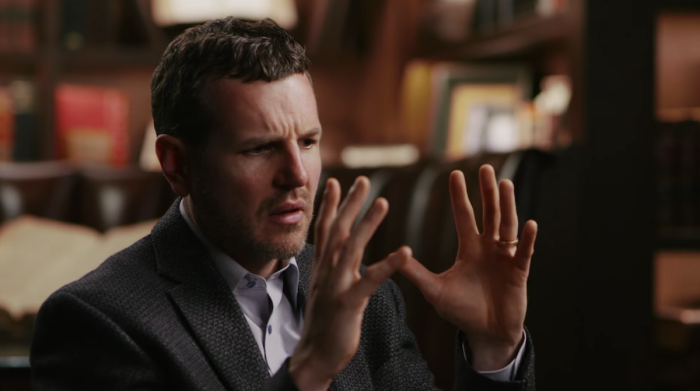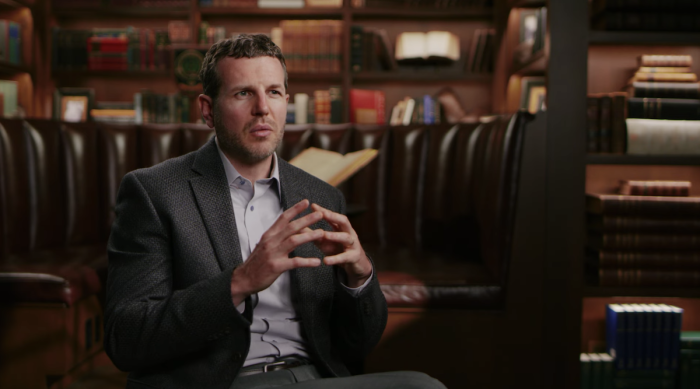Theologian advises pastors on how to tackle divisive topics

A theologian and author recently shared several tips for pastors on addressing divisive topics with their congregations.
Andy Naselli, an associate professor of systematic theology and New Testament at Bethlehem College and Seminary in Minneapolis, warned church leaders in an online discussion posted on Jan. 3 that far too often, pastors fall short of the glory of God based on their moral consciousness — or their awareness of what is right and wrong.
Naselli, a member of the Evangelical Theological Society, Society of Biblical Literature and Institute for Biblical Research, alluded to the idea that pastors tend to fail in their preaching when they shy away from handling current events in the pulpit by using a gentle but truthful approach.
He said that often, pastors would rather avoid specific topics to protect congregants who are sensitive to the truth of the Word of God.
"When you preach, it just takes so much wisdom to know where your audience is at. Even in a small group of people, you can't assume that their consciences are all functioning the same way," said Naselli.
"The safest way to do that is to just herald whatever the text of Scripture says and let Scripture help form those consciences and develop them and fix them and correct them and grow them."
Naselli advised that for a pastor to be considered a "wise preacher," they should be aware of where certain congregation members stand on certain issues before preaching to them.
Pastors should be more careful in how they address sensitive or divisive topics to help those people the issues impact directly as they hear the Gospel truth.
"If you're aware that you have people in your congregation who are watching films with sexually charged nudity … and you're preaching the passage on sexual immorality, and you want to apply it to your [preaching], and you're thinking it would be wise to go there, you'll probably approach that differently, more carefully, but still powerfully, still directly, still faithfully," Naselli said.
"But, you might approach it with more tact and carefulness than you would if you are aware that they already had conviction that watching sexually charged nudity is awful."
According to Naselli, preachers can be "unfaithful to the Lord" when they address a Gospel passage that touches on a glaring issue facing their congregation or their culture but refuses to address the issue directly.
"If we're talking about how the passage is addressing marriage between a man and a woman and the nature of sexuality, and the pastor, just kind of like a jetski, they kind of ski across the surface of the text and doesn't connect it to the modern day Sodom and Gomorrah that we're in and all of the sexual perversions that are influencing us in media and culture — If [they] don't address those kinds of issues head on — [they're] actually not helping people," Naselli warned.
"You're hating them; you're hurting them, you're harming them, you're not protecting them. And it's reinforcing their sense of well-being when they're in a culture that's totally going take on that issue."

Naselli said pastors must remain humble when addressing controversial current issues, adding that just because someone has status in the church doesn't make their theological conscience morally inerrant.
"Consciousness could be wrong. … A person today could think, 'abortion is a civil right, and to deny someone of that right is evil.' Their conscience actually could testify to that, and I'd say that their conscience is functioning in an evil way. They have an evil conscience and an immoral conscience," Naselli said.
"Just because your conscience registers something doesn't mean that's what God wants you to think. But that's how it feels to you. It's your sense of what you believe is right and wrong."
Pastors should not only be humble, but they should be teachable, Naselli noted.
"We should be growing in our ability to teach. Now, how to do that. Some of it is just natural like God has wired people to teach, and you got it, or you don't know how to do that. But everyone, I think, can improve. You can get better at the craft," Naselli said.
"One of the ways I tried to improve in the craft of teaching is to receive feedback from others. Like good feedback, not like the nice old lady who just says: 'that was the best sermon I ever heard.'… Get it from people who will tell you the truth. … That's the way to go. Another way to grow in your teaching is to learn from master teachers. I love to listen to excellent teachers and pick things up."
Nicole Alcindor is a reporter for The Christian Post. She can be reached at: nicole.alcindor@christianpost.com.




























